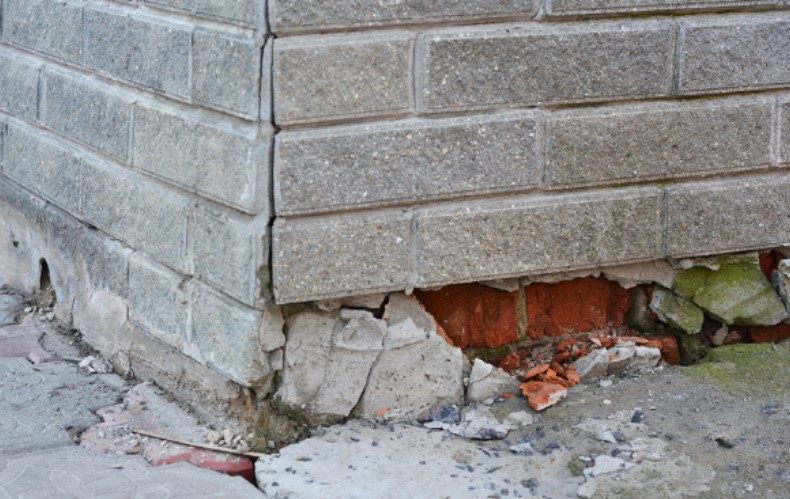Expansive soil is the clay that contains absorbed water in it. The more the water the more the pressure impact created on a building. The impact can create cracks on walls, floors and also on home foundations.
Foundation problems come as a result of moisture content drying out quickly. Shrinkage causes damage subsidence and fissures on the soil. The fissures facilitate deep penetration of water and hence more pressure on the structures. The damage occurs at a low pace and it is very difficult to discover it at its initial stages. Even poor construction can easily be damaged quickly by soil foundation problems.
Foundation problems due to soil expansion
Some clay minerals like smectite, beidellite, attapilgite, nontronite, and bentonite are very expansive. These soils in the presence of moisture are very expansive in the content of water and some salts. Expansive minerals have a high potential of expanding at a high rate. Damage of the soils is also triggered by the moisture content changing. When moisture content varies from one level to another, the expansion changes with time.
Identifying expanding soil
It may take a long time for one to realize there are cracks in your walls or floors when there is a soil foundation problem. Some sign happening to your structure will alert you soon when you see them. When you see the cracks appearing on the walls, floors and doorways, it becomes.Open cracks on ceramic tiles is another sign to note. When your windows and doors start jamming, sticking and opening, it presents a challenge. During the foundation of a building, the soil potential can be determined by soils that have colloidal clay minerals. These soils have sandstones, clayey, siltstone, and marls. The dry clayey soils heave under the low applied pressure and it collapses when the pressure is very high. Pressure can also be exerted on pavements and footings and hence cracks occur. Engineering guidance is also necessary to get the right information of the landscape and the quality of the soil.
Preventing soil expansion to foundations
To avoid future problems, it is advisable to control the issue before deciding to build a structure. You can look for a professional engineer who will be able to analyze the soil content and decide whether the place is suitable for a structure. A soil survey will determine the soil expansion features and type. A soil survey that indicates extreme expansion needs to be well analyzed. When building a site it is advisable to do an observation on the field and check if the soil is cracked.
Field observation also requires you to check cracking walls that are caused by soil movement. When constructing an area it is advisable to ask experts about the soil history condition of the surrounding areas. Mitigation measures on soil expansion can be implemented by the construction department within your area.
In order to test soil expansion you can look for civil engineers that have guidelines on site preparation, recommendation on slab and foundation design and soil bearing values.Replacing expansive soils can be replaced by non-expansive soils. You can also mix non-expansive soils and expansive soils together hence lowering the expansion index. Slabs and footing during construction should be well strengthened. Gravel can be added under the slabs when constructing to avoid soil movement.
A foundation repair contractor in Syracuse, NY can be contracted to avoid future problems of buildings collapsing. Also, try to identify the type of soil that is within your construction site.
